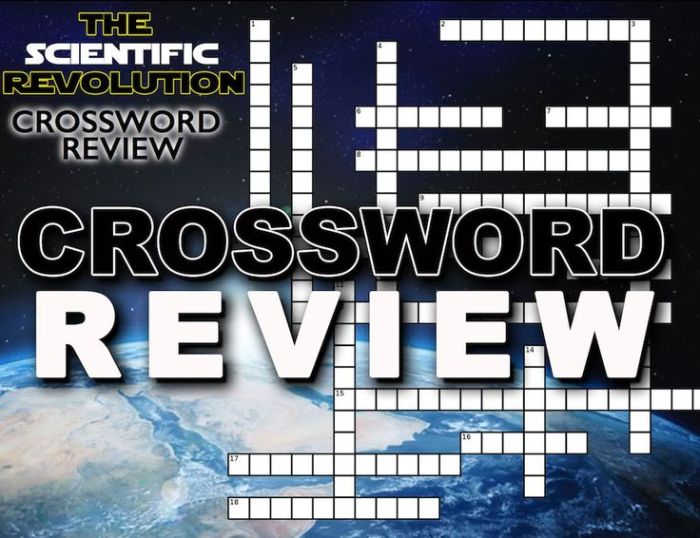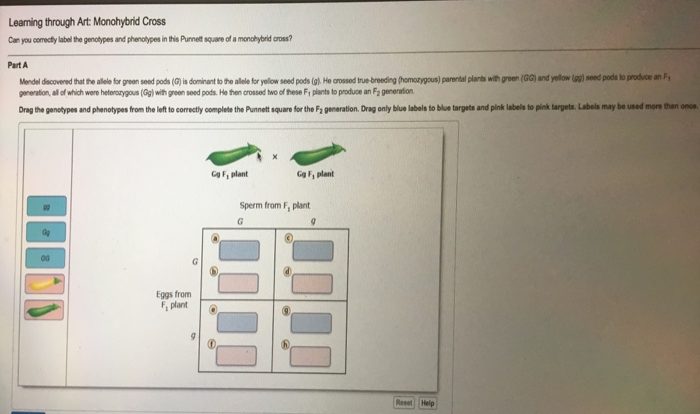Crossword puzzle the scientific revolution – Crossword puzzles, an enigmatic blend of entertainment and education, have played a pivotal role in unraveling the complexities of the Scientific Revolution. This captivating journey explores the historical context of this intellectual upheaval, delving into the cognitive benefits of crossword puzzles, and examining their striking parallels with the scientific method.
Prepare to embark on an enlightening expedition where the boundaries between science and wordplay intertwine.
The Scientific Revolution: A Historical Context

The Scientific Revolution, a period of radical transformation in scientific thought, spanned from the 16th to the 18th centuries. It witnessed a shift from reliance on ancient texts and authority towards empirical observation and experimentation. Key events included the publication of Copernicus’s heliocentric theory, Galileo’s telescopic discoveries, and Newton’s laws of motion.
Intellectual and cultural shifts played a crucial role in the emergence of modern science. Humanism, with its emphasis on reason and human experience, challenged the prevailing religious dogma. The invention of the printing press facilitated the dissemination of scientific ideas, while the rise of universities and scientific societies fostered collaboration and debate.
The Role of Crossword Puzzles in Education
Crossword puzzles, with their intricate grids and challenging clues, serve as valuable educational tools. They encourage critical thinking, vocabulary expansion, and problem-solving skills. By requiring solvers to retrieve information from memory and apply logical reasoning, crossword puzzles enhance cognitive abilities.
However, solving crossword puzzles also presents challenges. The need to fit words into specific spaces requires spatial reasoning, while the often-obscure clues demand creative thinking and a broad knowledge base.
Crossword Puzzle Construction and the Scientific Method
The process of constructing a crossword puzzle closely parallels the scientific method. Both involve observation, hypothesis formation, experimentation, and validation. The constructor observes the grid and formulates a hypothesis about how to fill it. They experiment by placing words and adjusting clues until they achieve a satisfactory solution.
Finally, they validate the puzzle by solving it themselves or having others test it.
The logical reasoning and problem-solving skills required for crossword puzzle construction are akin to those used in scientific research. Both endeavors require the ability to analyze, synthesize, and draw conclusions from data.
Thematic Crossword Puzzles and Scientific Concepts
Thematic crossword puzzles focus on specific scientific concepts, such as astronomy, biology, or chemistry. They can be particularly effective in enhancing understanding and sparking interest in these subjects.
| Type | Scientific Concepts |
|---|---|
| Astronomy | Planets, stars, galaxies |
| Biology | Cells, organisms, ecosystems |
| Chemistry | Elements, compounds, reactions |
Crosswords as a Reflection of Scientific Knowledge, Crossword puzzle the scientific revolution
Crossword puzzles can serve as a historical record of scientific discoveries. The evolution of scientific understanding over time is reflected in the clues and answers used in puzzles. For example, early crossword puzzles often included clues about outdated scientific theories, such as the geocentric model of the solar system.
As scientific knowledge advanced, so too did the content of crossword puzzles. Puzzles from the 20th century featured clues about the theory of relativity, quantum mechanics, and the structure of DNA.
Popular Questions: Crossword Puzzle The Scientific Revolution
What is the Scientific Revolution?
The Scientific Revolution refers to a period of profound intellectual and cultural transformation in Europe, spanning from the 16th to the 18th centuries, which marked a shift from traditional beliefs and practices to a more rational and empirical approach to understanding the natural world.
How can crossword puzzles be used in education?
Crossword puzzles can be a valuable educational tool, enhancing vocabulary, improving problem-solving skills, and fostering a deeper understanding of various subjects, including science.
What are the cognitive benefits of solving crossword puzzles?
Solving crossword puzzles engages multiple cognitive processes, including memory, attention, and logical reasoning, leading to improved cognitive function and a reduced risk of age-related cognitive decline.
